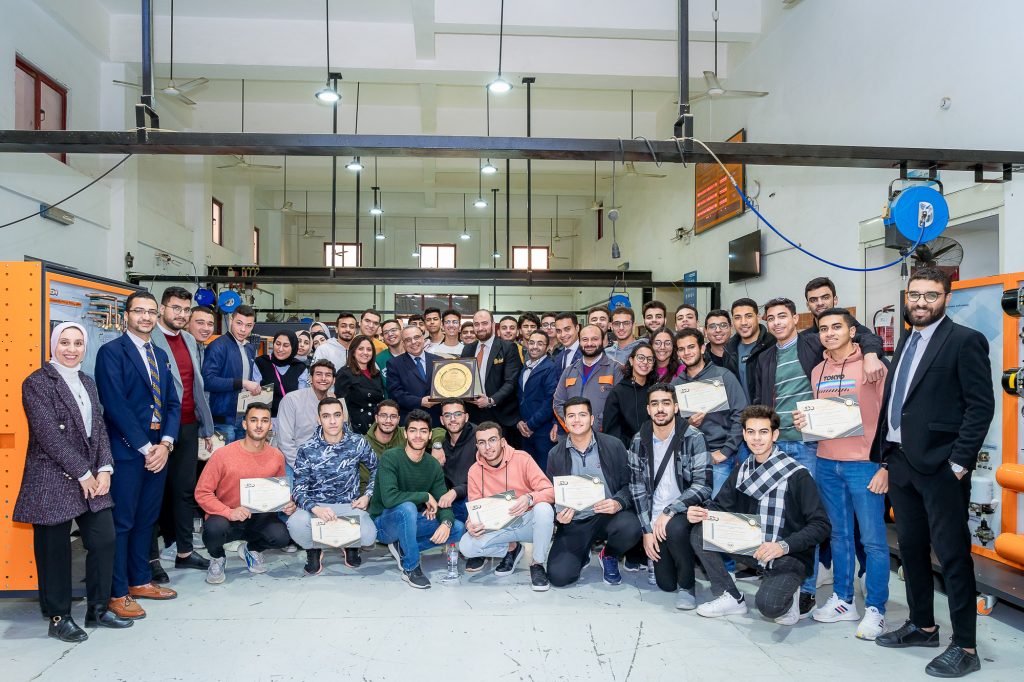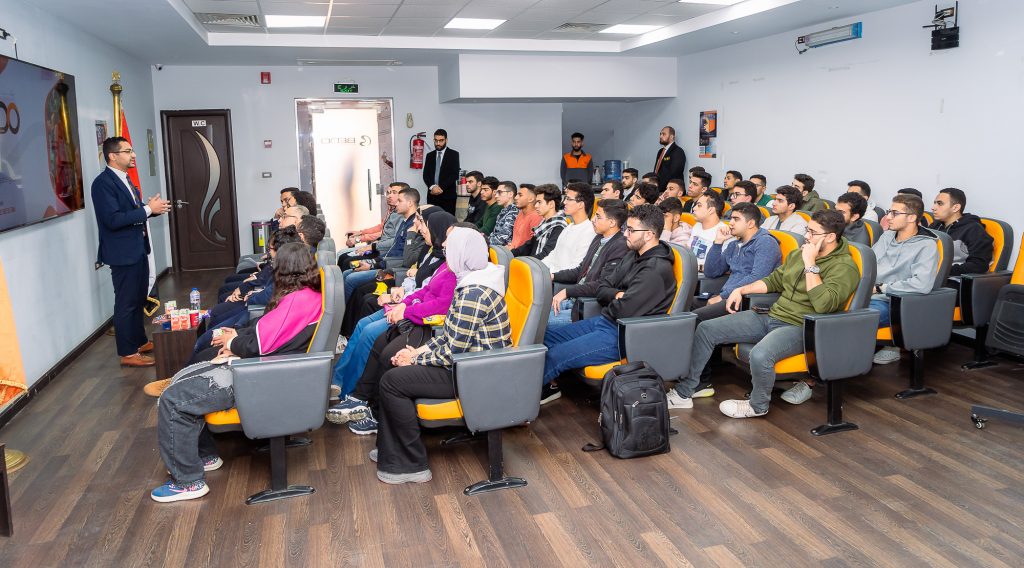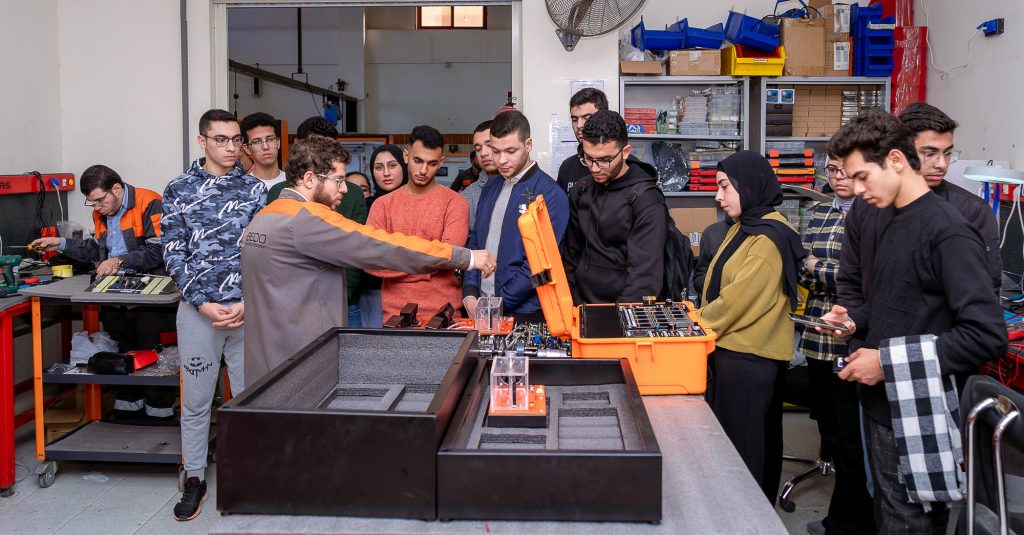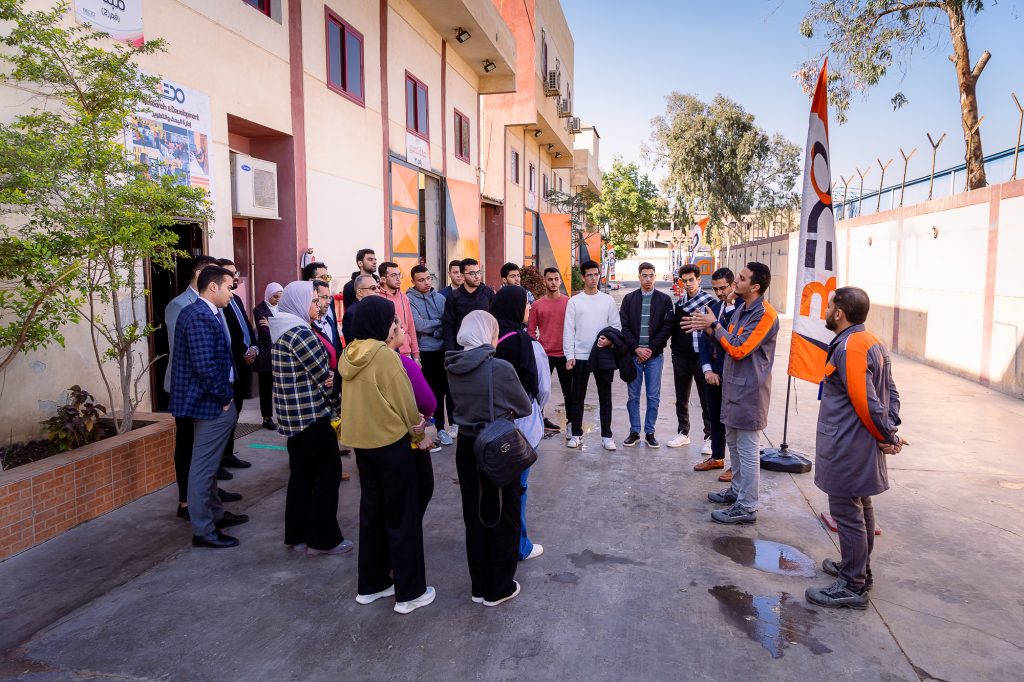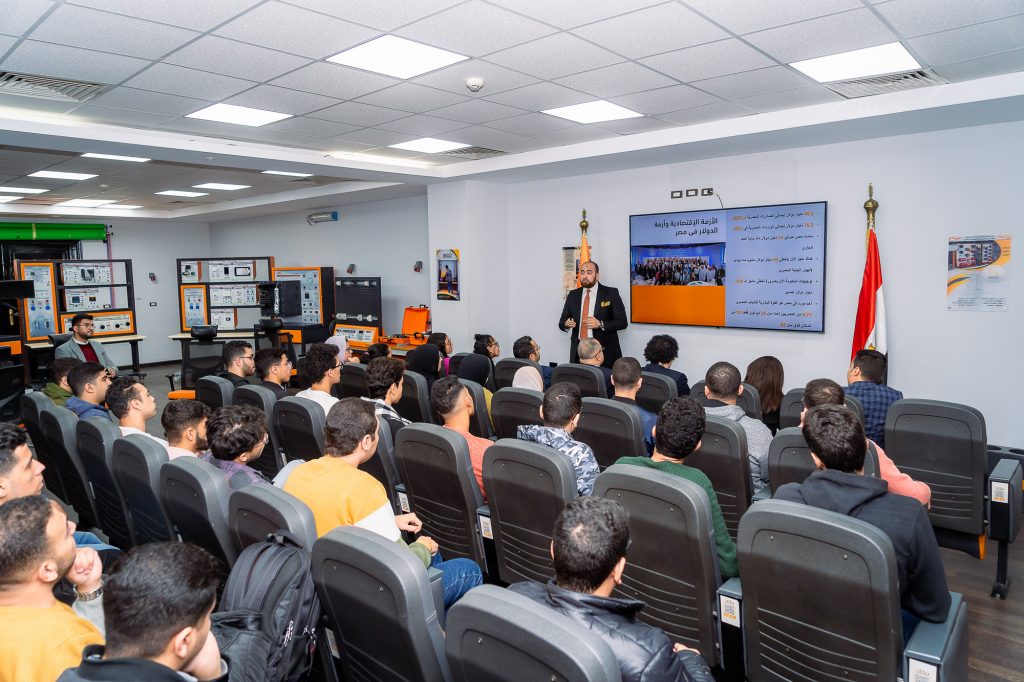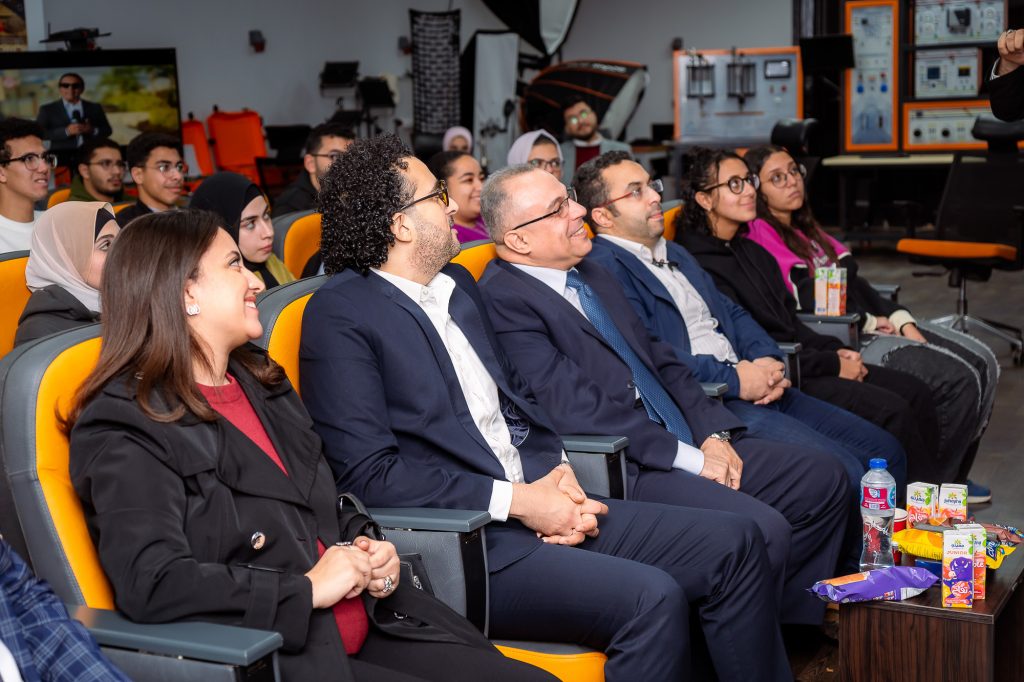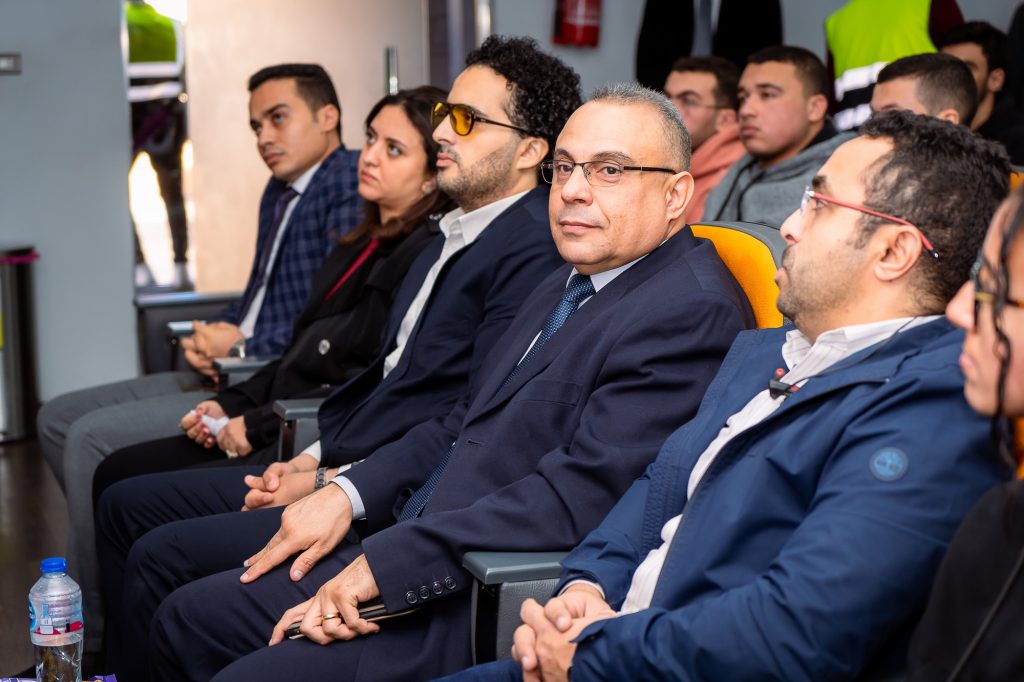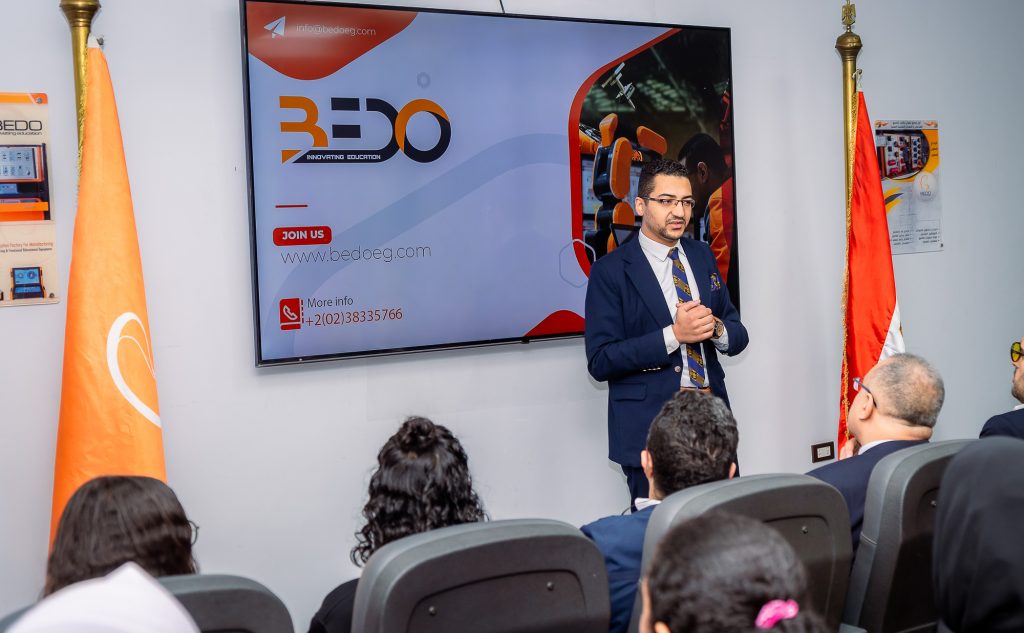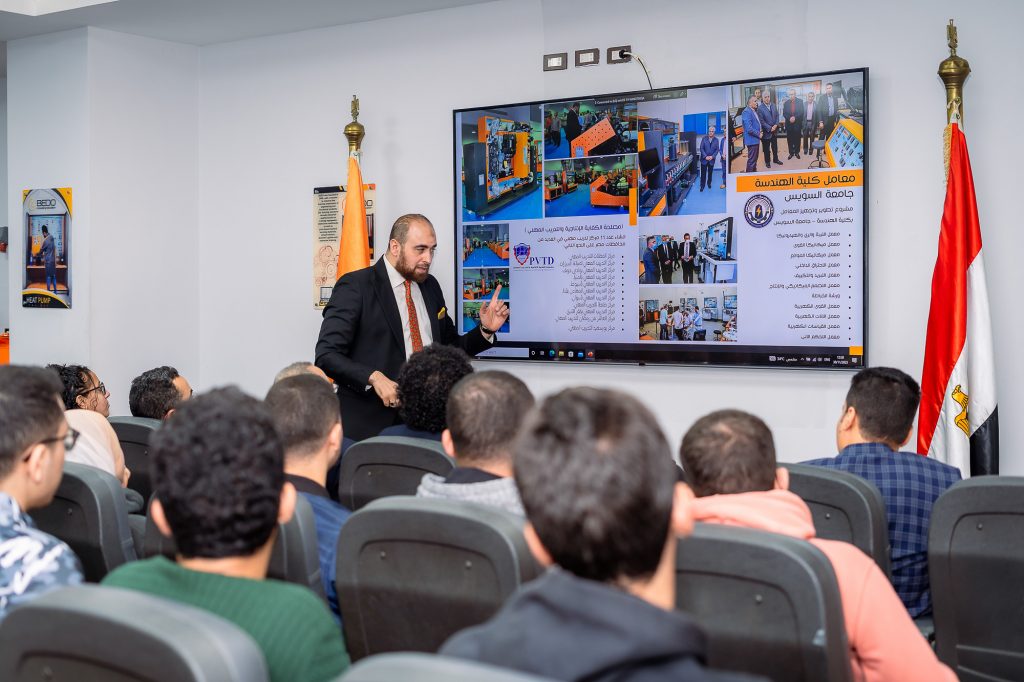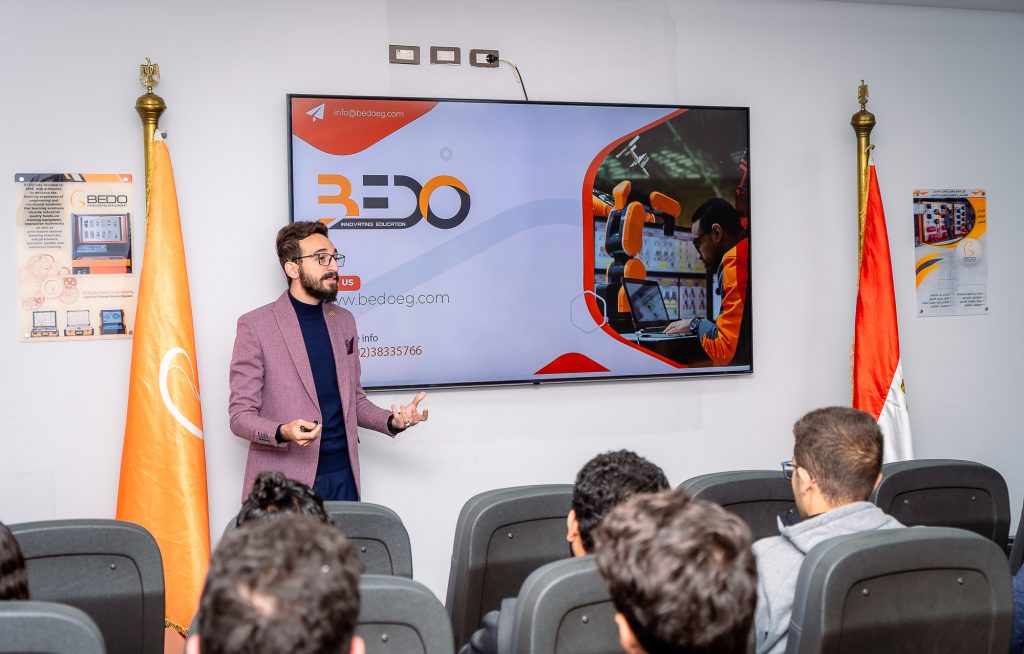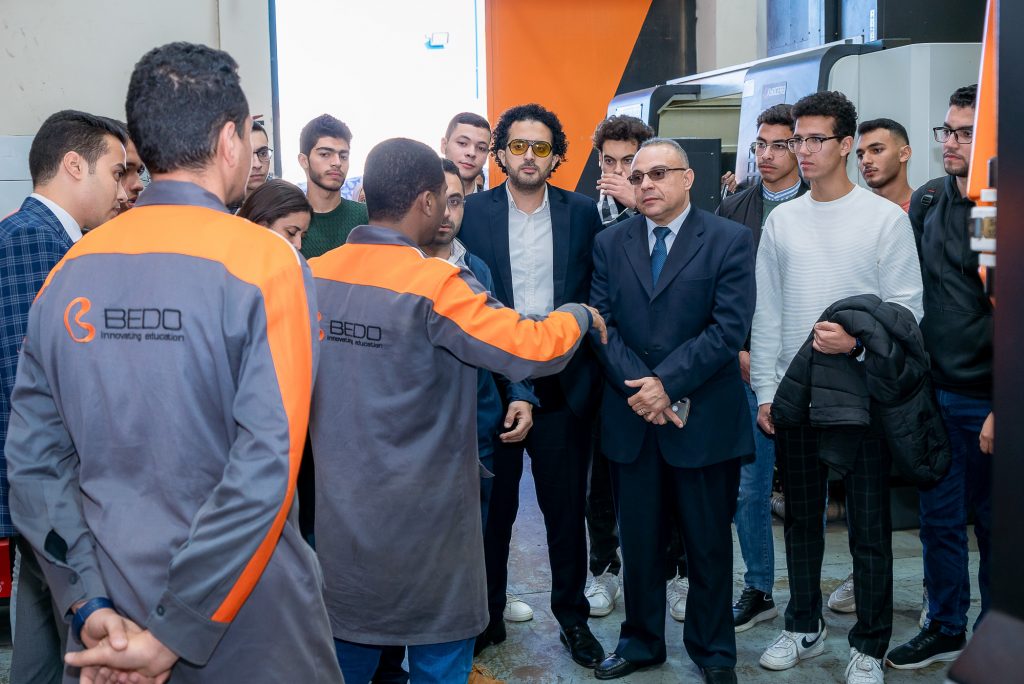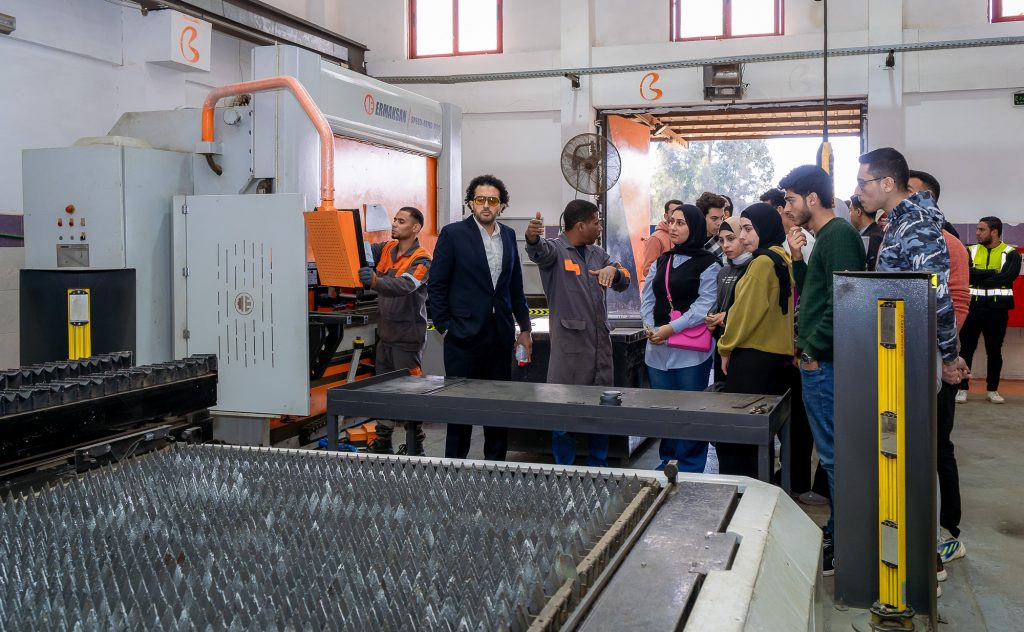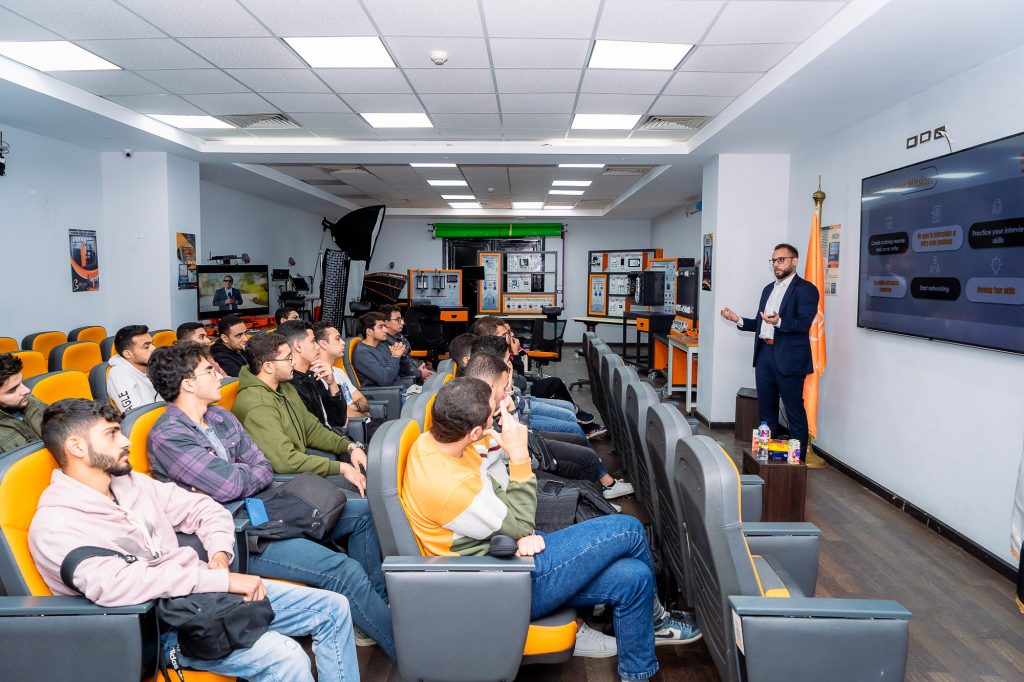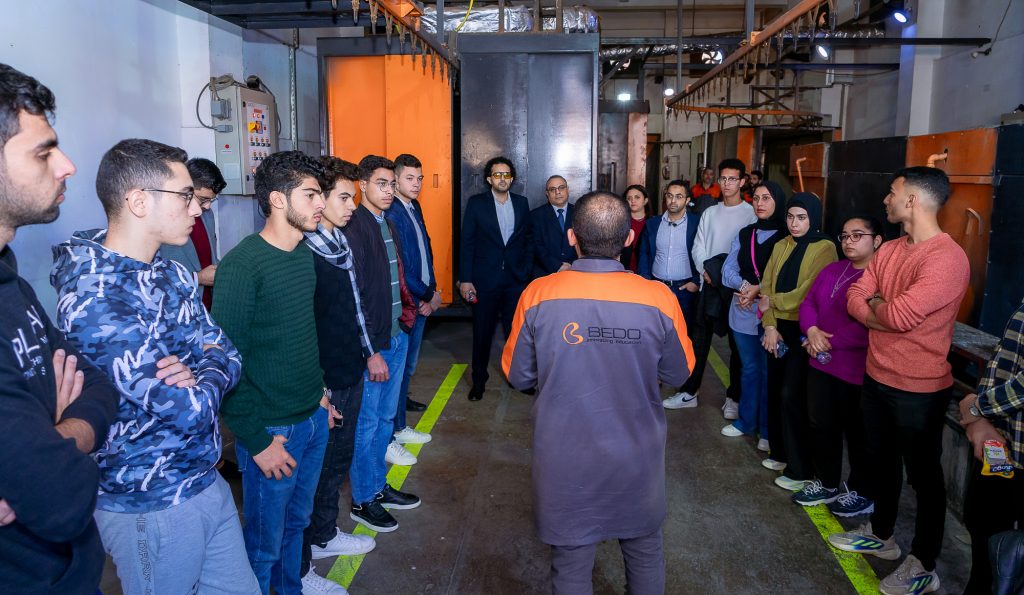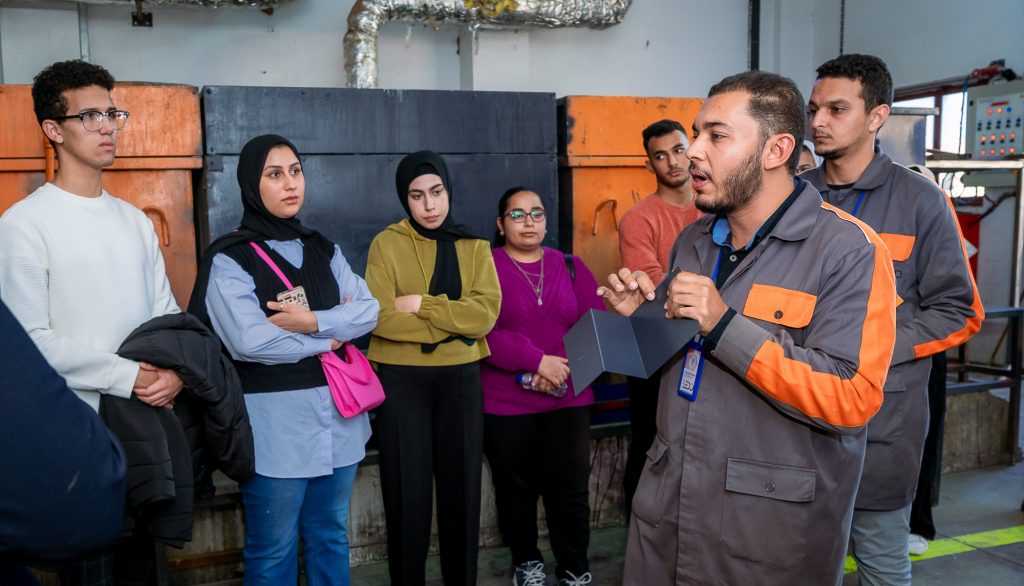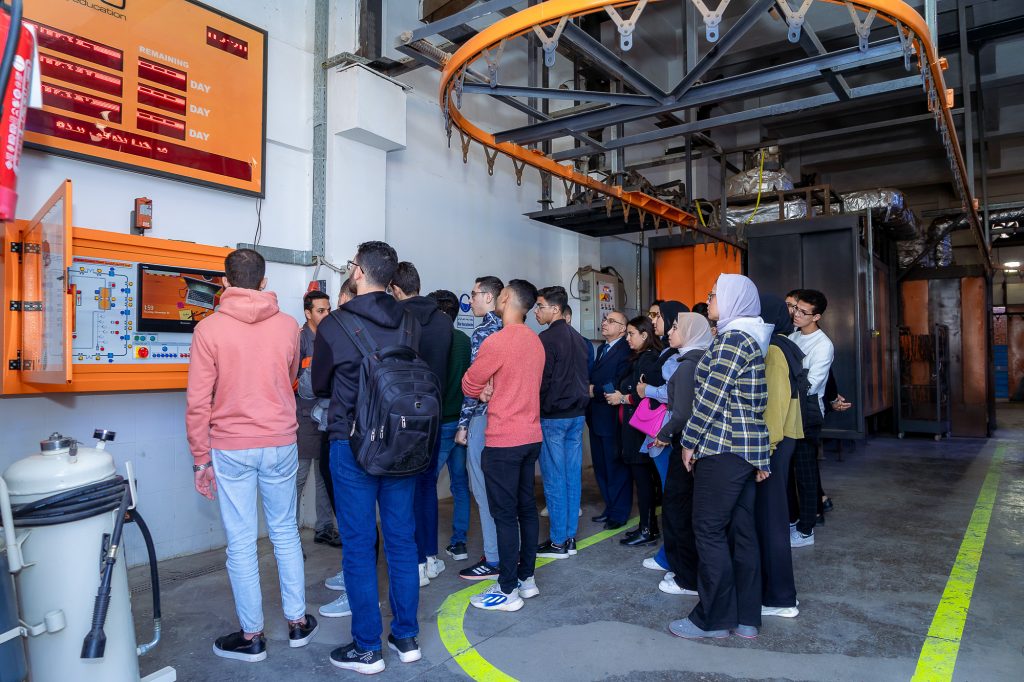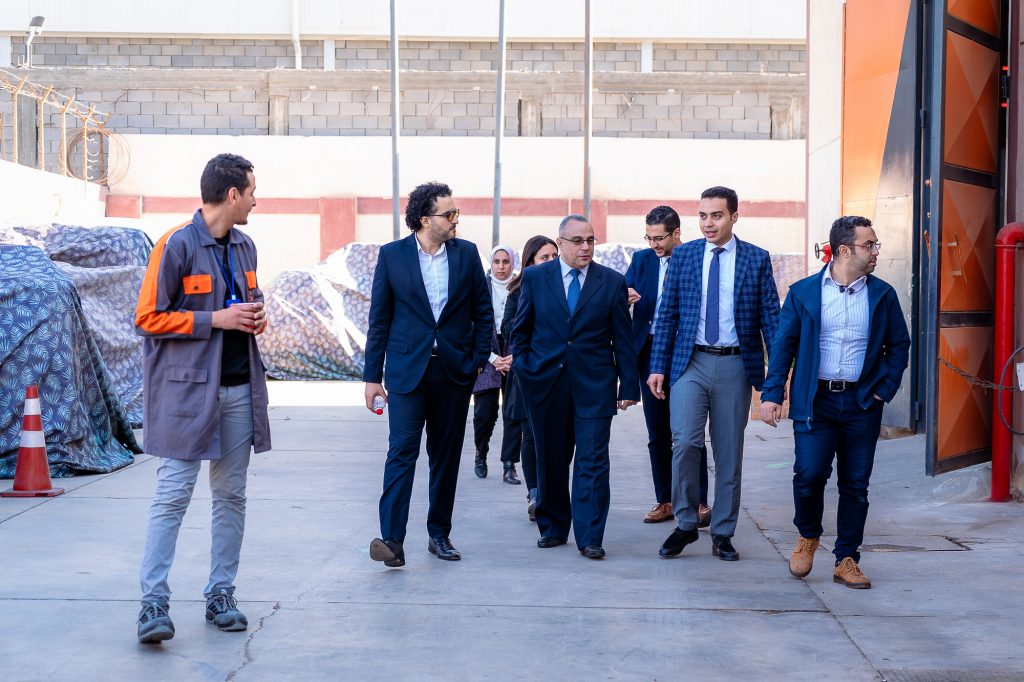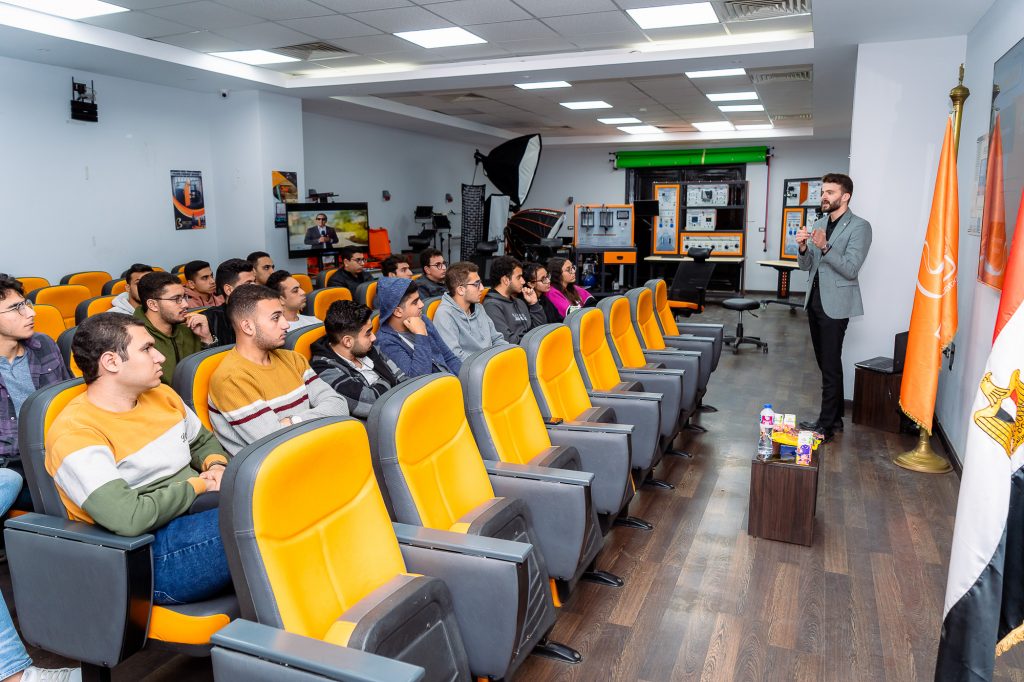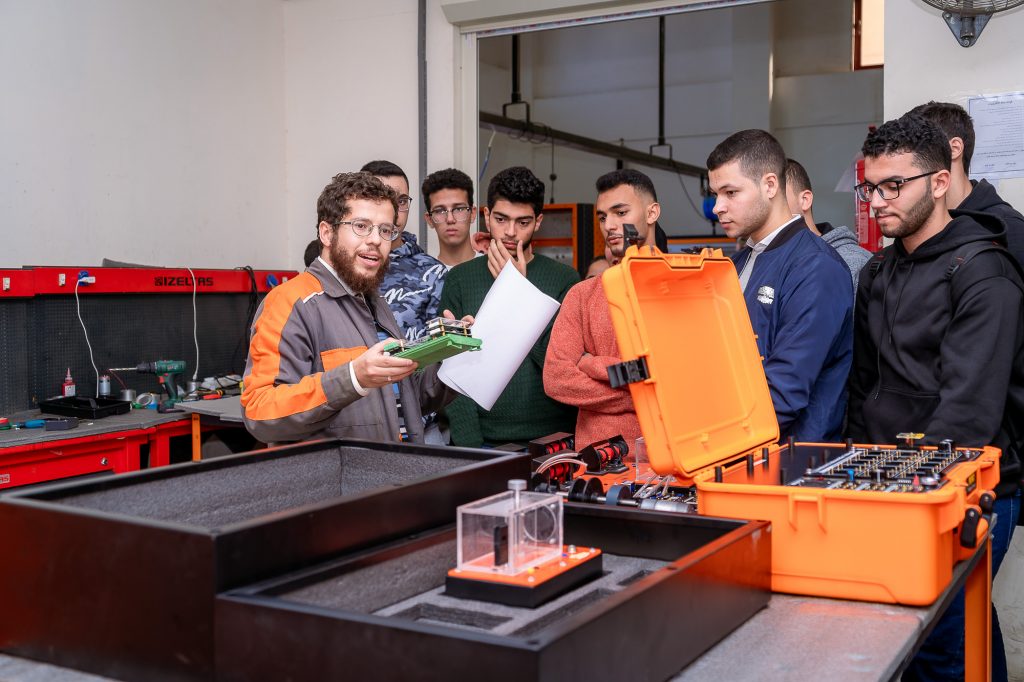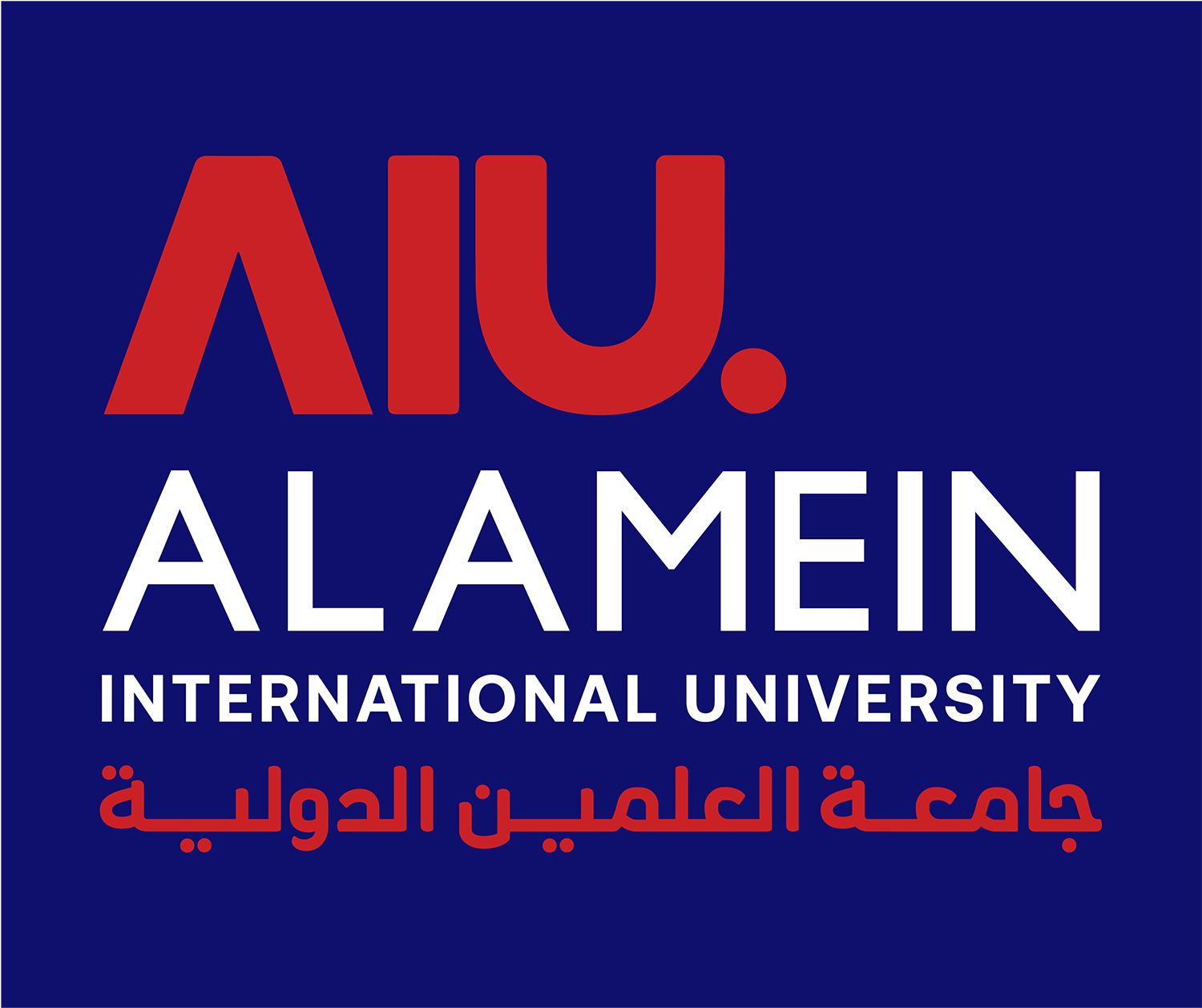Under the patronage of Professor Dr. Essam El Kordi, President of the University, and Professor Dr. Hesham Gaber, Vice President of the University for Academic Affairs, and in the light of the University’s keenness to support scientific and practical cooperation in order to develop communication and exchange of experiences between the university, society and industrial institutions, and to generalize the benefit from the various resulting research and exchange information and experiences in the fields of advanced technology and also linking academic study, scientific research and academic curricula to industry using the latest distinguished technologies in the local, regional and international labor market, and based on the invitation handed over by the Egyptian Company for the Development of Educational Technologies and Technology “BEDO” emanating from the Arab Organization for Industrialization to the Faculty of Engineering at AIU, a scientific visit was organized for a delegation from the college led by Professor Dr. Remon Eskander, Director of Academic Programs and a representative of Construction Engineering and Project Management.
The faculty members include Dr. Mohamed Abdel Karim, a representative of Communications and Electronics Engineering, Dr. Amr Mamdouh, a representative of Architecture and Digital Architecture, and Assistant Lecturer Dr. Heidy Atef, a representative of Mechatronics Engineering, and also the delegation also includes representatives of students from the Mechatronics Engineering and Communications and Electronics Engineering programs, went to the factory in 6th of October City in the Fourth Industrial Zone to learn about the factory’s capabilities in designing and manufacturing educational and applied laboratory devices in various technological fields. The delegation was received at the factory established in accordance with international standards, on Thursday, November 30, 2023 – the visit included a special timetable, which in turn included a group of lectures and introductory tours of the various parts of the factory and production lines. Many diverse discussions and workshops were also held regarding education and industry, the most prominent of which was the discussion of developing a joint cooperation protocol between the university and the company to comprise all aspects of research and industrial partnership, including: improving production efficiencies, training and supporting students in graduation projects, and providing them with important professional skills, which in turn poses creative solutions that provide students with twenty-first century skills and qualify them for the local, regional and international labor market.
